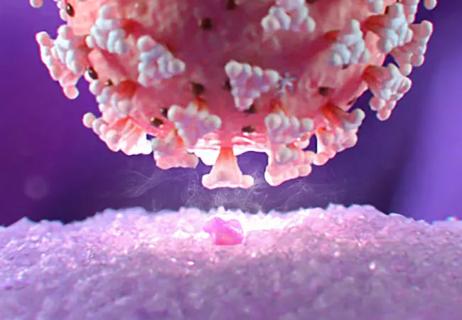
During this difficult time of the COVID-19 pandemic, it is important to recognize the range of challenges faced by healthcare providers – from providing care to critically ill patients to dealing with an increase in …

… she writes: “There are no clear data indicating that HCQ has a favorable effect on outcomes in COVID-19.” Dr. Litllejohn’s complete discussion of HCQ for COVID-19, along with her reference list, is …

… of 214 consecutive patients in Wuhan, China, hospitalized for either severe (41.1%) or nonsevere (58.9%) COVID-19.6Patients in this series had risk factors similar to those in other COVID-19 reports. Notably …

Although sheltering-in-place may help to flatten the curve when it comes to COVID-19, home isn’t always a safe place for everyone. During this time of uncertainty, healthcare providers should remember that …
Advertisement
Cleveland Clinic is a non-profit academic medical center. Advertising on our site helps support our mission. We do not endorse non-Cleveland Clinic products or services. Policy

… Overall fatigue, attention and cognitive deficits (“brain fog”) and sleep disorders are the most common. However, because COVID-19 affects all organ systems in the body, more than 200 distinct symptoms of long COVID have …

… were also commonly noted before other COVID-19 symptoms (in 8.5% to 15% of cases of COVID-19-associated urticaria) in multiple studies, and therefore may similarly provide an indication for COVID-19 testing …

… determinants that may promote age-associated COVID-19 severity.For example, the researchers found that hospitalized older COVID-19 patients had elevated levels of pro-inflammatory markers associated with COVID-19 severity and death, including …

… COVID-19 Vaccine Cause Long-Term Effects?Will the COVID-19 Vaccine Harm My Fertility?Will the COVID-19 Vaccine Change Your DNA?If I Am Young and Healthy, Do I Still Need the COVID …

By Joe Zein, MD, PhD, MBAThe nose seems to be the major port of entry for severe Acute Respiratory Syndrome Coronavirus 2 (SARS-CoV-2). Nasal swabs detect higher viral loads compared with throat swabs …

Whether from birth or developed later in life, the absence of smell has never gotten much attention — at least until the onset of the COVID-19 pandemic. Loss of smell is one of the most …
Advertisement
Advertisement